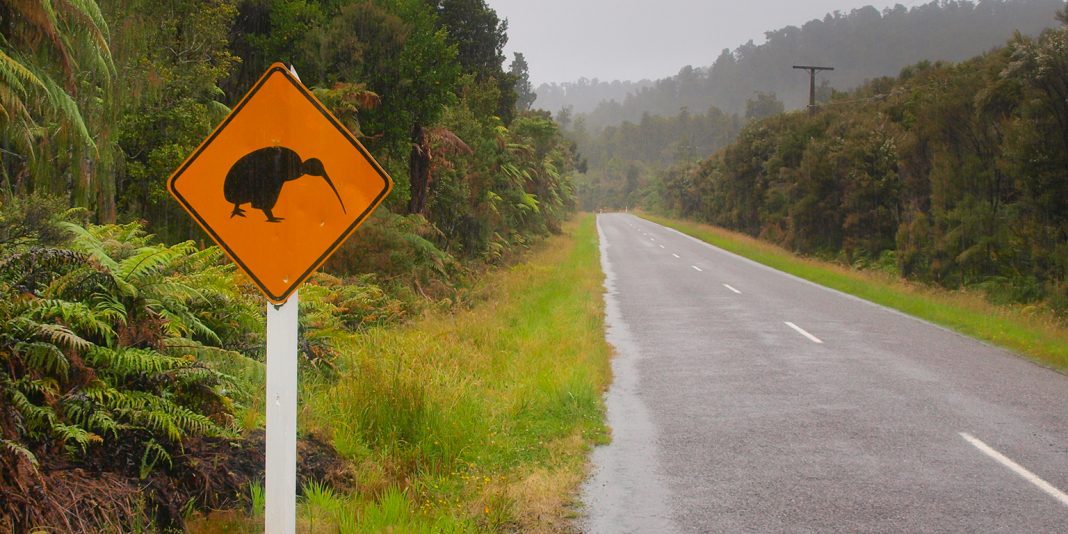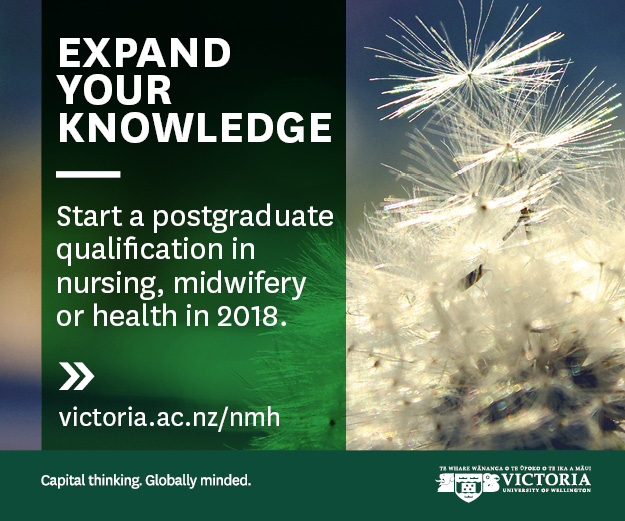The majority of rural nurses have undergone postgraduate study, are very experienced and face difficulties getting their patients to a base hospital, according to a recent survey.
More than 130 rural nurses took part in the online survey held earlier this year by the newly formed Rural Nurses NZ working party.
Rhonda Johnson, chair of the Rural Nurses NZ working party, said the survey findings confirmed some of her hunches and provided a platform to help develop an action plan for the group that came into being after March’s National Rural Health Conference. She said the group also remained keen to get a better grasp of the total number of rural nurses and was looking to do its own census by directly contacting rural hospitals, practices and health providers
The group’s online survey found that 79 per cent of respondents had completed some form of postgraduate education and 21 per cent had a master’s degree or were nurse practitioners. About 91 per cent of respondents accessed professional development online and nearly 60 per cent faced non-physical barriers to accessing professional development including funding, travel and accommodation costs and lack of cover or time to attend.
“We’ve listened to rural nurses and what it is they need and they want – and professional development is one of those issues,” said Johnson. “Obviously location is a big part of accessing professional development, and we hope to establish links, networks and connections with each other so we support each with professional development as well.
“I was probably pleasantly surprised by the numbers who have completed some kind of postgraduate education – I thought that was a real bonus for rural nursing and shows the calibre.” She said it might also reflect a trend across the whole profession, with postgraduate education being seen as important for maintaining competency.
“Obviously it is an ageing workforce, but again that is true of nursing as a whole.” What she hadn’t expected was that – despite the largest group of respondents being in the 55-64-year-old age bracket (38 per cent) and 56 per cent having been registered for more than 25 years – that the largest group of respondents had only been practising rurally for up to five years (27 per cent) and only four per cent had worked rurally for more than 20 years.
“When I actually thought about my own working environment [Central Otago’s Dunstan Hospital], although there is a stable workforce of mature nurses there are also a number of younger nurses coming through.”
She said to her the survey findings confirmed the need for a group like theirs to be in existence to advocate for rural nurses, provide mentorship and connection between rural nurses working in other contexts and places, and influence other nurses to think about rural nursing as a career path. “We want to help influence recruitment and retention in these areas which are often hard to staff.”
The survey also indicated that the vast majority of respondents faced various difficulties in transporting patients to a base hospital due to inclement weather and lack of transport, and some required a boat or plane to transport patients.
Johnson said a list of working items had been collated following the survey findings and members suggestions and would be prioritised for action.
She said the RNNZ group was also working on a mission statement and how the group will fit with existing rural groups. “We don’t want to reinvent the wheel; connections with other rural groups, like the Rural Hospital Network (RHN) and Rural General Practice Network (RGPN), are important and we are working on those at the moment.” (See RNNZ’s term of references’ purposes and objectives below.)
As part of that work, the group remains keen to get a clearer picture of the number of nurses working rurally. Johnson said the Nursing Council does provide a setting category of ‘rural’ when gathering data during annual practising certificate renewals, but most rural nurses tick settings like ‘practice nursing’ or ‘hospital’.
“So the Nursing Council data shows only 257 rural nurses working in New Zealand, but that is grossly under-represented so we need to find out how many rural nurses there are. Which may sound quite easy, but actually it is not – because the term ‘rural’ is not adequately defined.”
Johnson said there is a research proposal on the table by rural hospital doctor Garry Nixon to define the term ‘rural’, which would help with establishing a rural health workforce database.
But in the interim, the working party was looking to do its own work to get a ‘ball park’ figure by contacting hospitals, general practices and other health providers in a rural setting to find out how many nurses they employ. She said at present the Rural Nurses NZ membership is open to any nurse who believes they practise in a rural context.
Currently the working party, which includes nurses from the Far North to Stewart Island (see bios below), meet via a monthly video conference. Johnson said the aim was for all working party committee members to attend the next Rural Health Conference in Auckland in March.
RURAL NURSES NEW ZEALAND (RNNZ)
Purpose
To provide a regular forum that enables a diverse group of rural nurses from across New Zealand to develop models and/or strategies to support rural and remote nurses, including:
- Establish and maintain networking opportunities.
- Positively influence retention and recruitment of nurses in rural areas, including new graduate support.
- Contribute to the standardisation of standing orders for rural New Zealand.
- Collaboration with other organisations.
- Influence a recognised career pathway for rural nurses.
- Support development of rural nurse supervision.
- Build knowledge of the needs of rural nurses in New Zealand.
Objectives
- To advocate for, with, and on behalf of rural nurses in New Zealand.
- To support a means of providing consistent clinical direction and support to rural nurses particularly those working in isolation.
- To enhance networking of rural nurses within already established forums.
- To create innovative ways of bringing rural nurses together.
Rural nurses work in a broad variety of environments, including, but not limited to: general practice, hospital, public heath, occupational health, district, PRIME, residential care, palliative care, nurse specialist or nurse practitioner roles, mental health, LMC, Plunket, wellchild, whānau ora, long-term conditions, and nurse-led clinics.
RNNZ MEMBER BIOGRAPHIES
Rhonda Johnson: Chairperson
I have been immersed in rural nursing since 2002 and held the role of charge nurse at Dunstan Hospital for a total of 11 years. I recently moved into project planning and am now involved in the early stages of the Dunedin Hospital redevelopment project. I bring my rural knowledge and experience to this role.
I love the diversity and challenge that rurality brings and am committed to supporting staff and guiding professional practice in our unique context. I completed my PG Dip through the Rural Institute of Health and University of Auckland in 2008 and am now working toward my Masters of Nursing. I see the benefits of increasing the rural nurse profile in New Zealand and a need to establish better connections across the country to develop initiatives key to rural nurses in all contexts. I am currently on the Rural Hospital Network (RHN) executive team and am enjoying the new challenge of working with our enthusiastic group of rural nurses on the working party.
Emma Dillon: Secretary
Up until this winter I was working in Colville, a small village 30 minutes north of Coromandel, for two years. With an enrolled population of 700 patients, the clinic is owned/operated by a sole GP and employs two nurses plus support staff. Working as a rural nurse here includes practice nursing, district nursing, public health, palliative care and after hours/PRIME nursing. I was born and raised on the south coast of the South Island, and graduated with a nursing degree from CPIT in Christchurch in 2010.
Currently I am studying at the University of Otago, Christchurch, doing my PG Dip specialising in rural nursing. In late August I moved back to the deep south to take on the exciting challenge of working as a rural nurse specialist based mostly on Stewart Island, and in Tokanui in the Catlins.
Kate Stark: Communication Liason
Currently I work as a nurse practitioner (NP) at Gore Health Centre, part of an IHCF in rural Eastern Southland. I also work as an NP/PRIME Practitioner in Twizel, South Canterbury, and Central Otago. Prior to this, I worked in Roxburgh and Tapanui in rural primary healthcare. I am currently on the RGPN executive committee and hold the following positions of external nursing representative on behalf of the CPHCN:
- Liaison Rural GP Network (RGPN)
- Member Rural Health Advisory Group (NZRHAG)
- National PRIME Review Steering Group
- PRIME Clinical Governance Working Party
- NASO Air Ambulance Co-Design Clinical Advisory Group
I believe it is crucial to improve the heathcare of rural populations and to reduce the barriers for the health of rural people while simultaneously working for rural nurses to promote the unique role that rural nurses carry out individually and in teams. I am delighted to be involved in RNNZ and look forward to making a difference to rural nurses working in all contexts.
Virginia Maskill
Since graduating as an RComp.N in 1992, I have worked in a variety of clinical settings including the Nelson-Marlborough District Health Board. During this time I gained significant experience working in rural settings, including a dual role as an ambulance officer/registered nurse in a busy accident and emergency department and after-hours general practitioner service. For six of these years I was also employed part-time at the hospital’s alcohol and drug outpatient clinic as a registered nurse/counsellor. These positions provided me with extensive experience of the challenges specific to rural nursing due to wide geographical regions and a dispersed population often under-serviced with health resources.
In 2009 I joined the Centre for Postgraduate Nursing Studies at the University of Otago, Christchurch and the Department of Psychological Medicine, University of Otago, Christchurch from 2006 to 2016. I have a special research interest in the rural nursing workforce, hence my keenness to contribute to the Rural Nurses New Zealand working party. I am currently a member of the Rural Health Plan Working Group for the future development of rural health, Division of Health Sciences, University of Otago.
Cathy Beazley
Tena koutou katoa. Ko Cathy Beazley toku ingoa.
I began working as a nurse practitioner in 2013 and currently work in primary health care for Hokianga Health (a Māori provider) in the remote north-west of the North Island. Hokianga Health provides health care for an enrolled population of about 6,350, plus the all-year-round visitors.
Having started work in rural practice in 2000, I have gained experience in a number of positions, including working as an inpatient RN on small acute ward, rural practice nursing and community nursing.
At a local level I am a member of our rural GP, Clinical Governance and Significant Event groups. Regionally I am a member of the Primary Options Programme Northland group and Manaaki Manawa Heart Care Clinical Governance Group. I am also involved in a new rural research project, focused on the impact of introducing a haematology analyser at a rural hospital. I believe we need to work collectively to inspire future growth of this particular area of specialist nursing and I look forward to being part of Rural Nurses New Zealand.
Rhoena Davis
I am a nurse practitioner working in the northern rural area of Whangaroa in Whānau Ora. I have been an NP for eight years, working in rural areas for approximately 25 years.
I have completed a Master in Clinical Advanced Nursing with First Class Honours through Auckland University and my Expert PDRP for Primary Health Care. I have completed a Postgraduate Diploma in Māori Business Studies through Auckland University, Postgraduate Certificate in Well Child Health through Whitireia Polytechnic, Graduate Certificate in Specialty Nursing Practice (Child and Family Health) and a Graduate Certificate in Nursing Practice (Public Health).
I am excited about what the newly formed Rural Nurses New Zealand working party can offer rural nurses and am already enjoying being involved.
Debi Lawry
I came to rural nursing late in my career after spending much of my nursing life working in Auckland. I have been a bedside (incubator side) nurse, a clinical nurse educator, a charge nurse and a nurse consultant. Along the way I also became a midwife. I completed an Advanced Diploma in Nursing and have since had a varied academic journey with a number of post graduate papers in neonatal science, health management, ethics and health policy. I moved to Dunedin in 2002 to help establish the newly created nurse director role. Five years later I achieved my dream of moving to Central Otago and working at Dunstan Hospital.
My eyes were opened to the complexities, challenges and joys of rural healthcare. Much of my career has been spent in nursing leadership roles where I strive to ensure nurses have the education, resources (human and consumables), skills and equipment to do their job well.
I am now very keen to be part of a working party to identify the issues for rural nurses, particularly hospital nurses (but not exclusively so) and to advance our cause.
Christine Dorsey
Kia ora. Ko Christine Dorsey toku ingoa.
I live in the Hokianga, in rural North Island. I am currently employed at Hokianga Health as the Hospital Services Manager for our small rural hospital. My roles include overseeing the 24/7 accident and emergency, acute inpatients, and residential care services.
My background is in emergency care and midwifery across both primary and secondary care.
At an organisational level I am a member of the executive team and co-ordinate internal meetings and ongoing professional development for staff. I am also currently the chairperson for the South Hokianga St John – an endangered service in the current climate.
With regards to rural nursing, my interests are in developing standardised clinical guidelines and standing orders for safe, effective use in rural New Zealand. In addition to this, I am supportive of further work and resources to improve easily accessible professional development options for rural nurses, something that is one of the aims for the Rural Nurses New Zealand group, hence I am very pleased to be involved.
Rachael Pretorius
My name is Rachael Pretorius and I am a nurse practitioner working in a rural general practice in Martinborough, South Wairarapa, where I have worked for the last two years. I am also PRIME trained. I am acutely aware of the issues that impact on rural living, nursing, and practice. Living and working in a rural area means working to the top of your scope, dealing with everything that comes through the doors, hoping your internet will work at home (or work) and that you might be able to do some online learning sometime, and hoping the roads aren’t flooded out so patients can get to the practice over gravel roads.
I am the College of Nurses representative for the Rural Health Alliance Aotearoa New Zealand (RHAANZ) and a RHAANZ council member.
I love working in a rural practice. Even though I haven’t lived in rural New Zealand for very long, I know what we miss out on compared with our city counterparts and I think a rural nurse working party is an excellent way for rural nurses to get their voices heard and ensure that rural nurses enjoy the same support that urban nurses do.





















